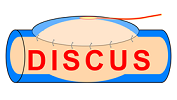What condition does DISCUS look at?
DISCUS is a trial looking at acute Traumatic Spinal Cord Injury (TSCI), which is a devastating condition that causes permanent disability (paralysis, numbness) and other complications such as chest and urine infections, pressure ulcers and loss of bladder and bowel control. In UK, one person suffers a spinal cord injury every 8 hours and there are about 40,000 people living with long-term disabilities from cord injuries.
What are the current treatments for acute TSCI?
Currently, there are no treatments shown to benefit patients with spinal cord injuries. After the injury, the spinal cord swells and the pressure inside the cord rises, which obstructs the flow of blood to the injury site, causing further damage. Surgery aims to straighten and fix the spine with screws and rods to reduce pressure on the injured cord.
What are the aims of DISCUS?
Based on our research, we think that the tough membrane around the spinal cord (dura) is a major, but unappreciated, cause of cord pressure after injury. An operation called duroplasty involves opening the dura and stitching a patch of artificial dura to expand the space around the swollen spinal cord. We have shown in a small study of patients that performing this operation safely and effectively reduces pressure on the injured cord. A similar operation is routinely used to decompress the swollen brain after brain injury, but, for spinal cord injury, standard treatment is surgery on the spine without the duroplasty. In this study, we will investigate whether duroplasty helps improve patient outcomes after spinal cord injury. We predict that patients who had standard treatment plus duroplasty will have better outcomes than those who had standard treatment alone.
Who is eligible to join DISCUS?
The trial aims to recruit 222 patients aged 16 years or older, with severe spinal cord injuries in the neck from 26 NHS hospitals. Consent will be obtained from the patient or their family and surgery will be done as soon as possible (within 72 hours of injury).
How do I know which treatment I will receive if I join DISCUS?
This is a randomised controlled trial. This means that those that agree to take part will be allocated by chance (like tossing a coin) to standard treatment or standard treatment plus duroplasty. Patients will not be aware which treatment they receive.
What do I need to do if I join DISCUS?
After agreeing to take part in the trial, patients will be asked to fill in questionnaires about their quality of life and will also be assessed on how well they can use their hands, walk and control their bladder and bowel. Some of these assessments will be repeated at 3, 6 and 12 months after surgery. These assessments will be combined with planned hospital visits and some questionnaires will be completed over the phone or by email. Some patients will also be asked to take part in a smaller study which involves placing probes at the injury site.
Patient and Public Involvement
DISCUS is focused on improving the quality of life of patients with spinal cord injuries. The study was designed with help from the Spinal Injuries Association and patients with spinal cord injuries. Two patient meetings were held to discuss the patient/family information sheet, consenting process and outcome measures. Patients with cord injuries will also be involved in the running of the trial.
How will DISCUS benefit future TSCI patients?
If this research shows there is a benefit to adding duroplasty to standard treatment, it is anticipated that duroplasty will become standard care for TSCI patients in the UK and, potentially internationally. Patients taking part in our research will be informed of the study findings via the Spinal Injuries Association.
